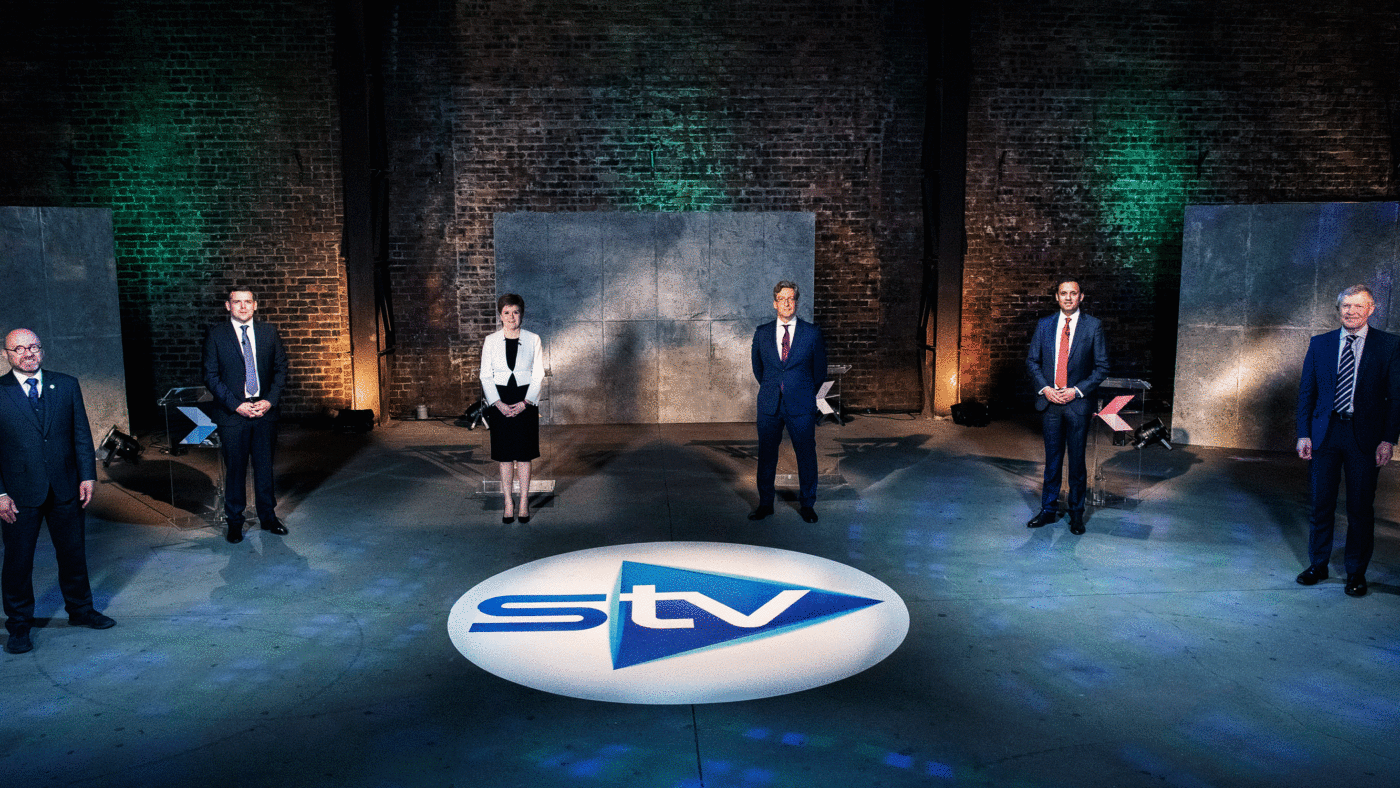There’s one thing missing from the election campaign in Scotland.
Despite being one of the most heated of all the elections taking place across the UK next month, there’s been no mention of the f-word.
Scotland’s fiscal deficit – which is on track to reach £40bn this year – hasn’t had a look in so far.
The fact that the Scottish Government is spending considerably more than it is raising doesn’t seem to qualify for discussion in this election campaign.
Of course, there are exceptional pressures on public finances this year. In Scotland, the increased spending on account of the pandemic has come at the same time as oil revenues have plummeted, leading to a deficit which the IFS says could hit 25% of GDP this year.
But this is by no means purely a pandemic problem. The IFS estimate that the deficit was already 8.6% of GDP in the financial year before Covid struck.
It’s perhaps worth remembering that the European Union requires member states to reduce their deficits to 3% or less of GDP as a condition of membership – a rule which has been suspended during the pandemic. That’s something you would think should worry the SNP, given their focus on reunification with Brussels.
Perhaps it’s obvious why politicians are wary about pointing out the growing problems with Scotland’s finances. Drawing attention to a black hole leads to a discussion about how to fill it, which few politicians in Scotland seem to want to tackle these days – least of all the SNP, who have been in charge of Holyrood’s spending powers for the past 14 years.
As the Scottish Government sits within the framework of the UK, the deficit remains notional. The Scottish Government is not racking up debt or paying interest – the deficit is absorbed into the broader finances of the UK. There’s even less of a reason to talk about a deficit that only exists on paper, and which people can’t feel in their pockets.
Tackling the deficit has elephant traps for politicians on both sides of the independence debate.
For nationalists, pointing out the poor state Scotland’s finances would be in if it were an independent country is not generally considered a great tactic. While for unionists, over-egging the broad shoulders of the Union risks feeding into a dependency narrative and accusations of ‘talking Scotland down’.
The result is an election campaign dominated by spending promises with very little about how to grow Scotland’s economy, increase productivity, and ultimately increase tax revenues. This is a campaign dominated by discussion about how the cake should be divided, rather than how to bake a bigger cake.
In some ways this is in part down to the current model of devolution. Scotland has two governments, but the relationship between them is imbalanced – and it increasingly feels like one taxes and the other one spends.
There have been steps to address this in recent years, with the Scottish Parliament now having greater tax raising powers, and the UK Government’s Internal Market Act opening the door to more direct spending in Scotland from the Treasury. These are welcome measures and more should be done to balance the relationship between Westminster and Edinburgh.
But the lack of willingness to address the deficit isn’t purely down to constitutional constraints. The Scottish Government already has considerable powers, particularly in areas like infrastructure and skills training. These powers could be used to great affect in helping to create jobs and support businesses, particularly in the wake of the pandemic, but we are hearing precious little about that during this election.
When the Scottish Parliament was reconstituted in 1999, it was intended as so much more than a forum for deciding where money should be spent. It was an institution to give a louder voice to people in Scotland and ensure that decisions were made closer to people they affect.
It gave the Scottish Government the power to pass laws and policies that would help Scotland thrive and chart a course towards great prosperity for its people.
In the years since then, that broader aim has been either overlooked or crowded out by independence. Rather than setting out a vision for the future, the electorate is being presented with a shopping list of spending promises. Instead of talking about how the powers of the Scottish Parliament can be used to grow the economy, they are being used to widen an already large budget deficit.
As long as they aren’t racking up debt of their own, the Scottish Government can afford to ignore the deficit. But when one pound in every four being spent in Scotland is not coming from revenue generated in Scotland, there are serious questions to be asked.
The deficit is a sign of politicians growing complacent and lacking ideas. Perhaps it’s no coincidence that the public finances left behind by the last Labour government in 2010 are remarkably similar to those seen in Holyrood today.
At this moment, perhaps more than any in the history of the Scottish Parliament, we need vision and imagination from political leaders. Every lever available to the Scottish Government should be used to help get businesses back on their feet and people back into work. This ought to have been the focus of this election campaign.
There is not just a budget deficit in Scotland, but also a deficit of leadership.
Click here to subscribe to our daily briefing – the best pieces from CapX and across the web.
CapX depends on the generosity of its readers. If you value what we do, please consider making a donation.


